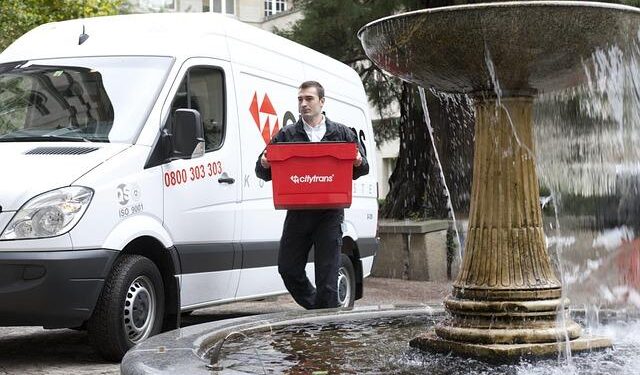Table of Contents
Executive Summary: Navigating the Authentication Process for New York Marriage Certificates
The process of obtaining an apostille for a New York marriage certificate is a fundamental requirement for its legal recognition and use in foreign countries that are signatories to the 1961 Hague Apostille Convention.
For nations not party to this convention, a Certificate of Authentication serves a similar purpose, albeit often necessitating additional legalization steps.
This report provides a detailed, step-by-step guide to navigating the New York State Department of State’s (NYS DOS) authentication procedures.
It delineates the specific requirements, applicable fees, various submission methods, and crucial distinctions based on the original issuing authority of the marriage certificate within New York.
A thorough understanding of these procedural nuances is essential for applicants to prevent delays and ensure the successful authentication of their marriage certificate for international purposes.
I. Understanding the Apostille and Certificate of Authentication
This section establishes a foundational understanding of the authentication process, its necessity, and the specific purview of the New York State Department of State in facilitating the international recognition of documents.
Definition and Purpose
An apostille or a certificate of authentication is a specialized document affixed to public records to enable their legal acceptance and use in a foreign country.
Its core function is to verify the authenticity of the signature of the official who executed the original document, confirm the capacity in which that official acted, and, where applicable, identify the seal or stamp present on the document.1
This validation process is critical for ensuring the legitimacy of a document, such as a marriage certificate, when presented to foreign authorities for official purposes.
Distinction: Apostille vs. Certificate of Authentication
The specific form of authentication required is determined by the destination country.
An Apostille is issued for documents intended for use in countries that are members of the 1961 Hague Convention Abolishing the Requirement of Legalization for Foreign Public Documents.1
This international treaty simplifies the authentication process among its signatory nations.
Conversely, a
Certificate of Authentication is issued for documents destined for countries that are not members of the Hague Convention.1
Documents requiring a Certificate of Authentication may necessitate further legalization by the embassy or consulate of the destination country.
The New York State Department of State (NYS DOS) is the designated authority responsible for issuing both forms of authentication for documents originating within New York State.2
Scope of Authentication by the New York State Department of State (NYS DOS)
The NYS DOS possesses the exclusive authority to authenticate public documents issued within New York State that bear the original signature of a New York State official or a county clerk.1
This foundational requirement is a critical prerequisite for any document submitted for an apostille or certificate of authentication.
Documents frequently authenticated by the Department of State include vital records such as birth, marriage, and death certificates, as well as divorce certificates and educational documents like school transcripts and diplomas.1
A crucial limitation exists regarding the types of documents the NYS DOS can authenticate.
It is imperative to understand that the NYS DOS cannot authenticate federal documents, such as FBI background checks; these must be authenticated by the U.S. Department of State.1
Similarly, federal courts, like the Northern District of New York, explicitly state their inability to issue apostilles for state-issued documents, including marriage certificates, directing applicants to the NYS Department of State for such requests.3
This clear delineation of authority is not merely an administrative detail; it highlights a common pitfall for applicants.
Misdirecting documents to the incorrect governmental agency, such as sending a state marriage certificate to a federal court or an FBI background check to the NYS DOS, invariably leads to immediate rejection of the application.
This results in wasted postage, lost processing fees, and significant delays, forcing the applicant to restart the entire process with the correct authority.
Understanding these jurisdictional boundaries from the outset is paramount to ensuring a smooth and efficient authentication process.
The requirement that documents must be “public documents issued in New York State which are signed by a New York State official or county clerk” 1 functions as a critical gateway.
This means that private records, such as personal letters or internal company contracts, or unofficial copies, cannot be directly authenticated by the NYS DOS.
To become eligible for authentication, such documents often require an intermediate step, typically notarization, which then renders the
notary’s signature a “public” one that can be certified by a County Clerk.2
Only after this preliminary certification can the document proceed to the NYS DOS for an apostille.
This establishes a hierarchical authentication process: for a marriage certificate, this means obtaining an officially certified copy from the original issuing authority (e.g., City Clerk, County Clerk, or NYS Department of Health) is the absolute first, non-negotiable step.
Without this foundational “public” and “officially signed” document, no further authentication steps are possible, making the initial document acquisition a critical success factor for the entire process.
II. Step-by-Step Guide: Obtaining an Apostille for a New York Marriage Certificate
This section provides the core procedural guidance, emphasizing the critical distinctions based on the original issuing authority of the marriage certificate within New York State, a frequent source of applicant confusion.
A. Initial Document Preparation: Obtaining a Certified Copy
The first and most crucial step in the apostille process is securing a certified copy of the marriage certificate that meets the specific requirements for authentication.1
This often necessitates obtaining a new copy, as older or unofficial versions may not suffice.
A prevalent challenge and frequent source of confusion for applicants is accurately identifying the document issuer.1
Many vital records issued in New York State bear the phrase “New York State” on the document.
However, this phrasing alone does
not confirm that the document was issued directly by the New York State Department of Health.1
City, town, and other local agencies within New York, including New York City’s Marriage Bureau, also issue vital records.
These local documents may use terms such as “registrar,” “vital records,” or “vital statistics”.1
The distinction is critical:
only documents issued by the New York State Department of Health and bearing the original signature of the Director of Vital Statistics or NYS Registrar are exempt from the subsequent County Clerk certification step.1
Therefore, applicants
must meticulously review the certification on their specific marriage certificate to accurately determine the actual issuing authority.1
This careful review is essential because the process for authentication varies significantly depending on the original issuer.
For marriage records originally created in New York City, the initial step involves ordering a certified copy directly from the City’s Marriage Bureau.
This copy must bear an original signature of the City Clerk.2
This requirement for an original signature is not a mere suggestion; it is a foundational prerequisite for the subsequent County Clerk verification step, which explicitly verifies
that specific signature.
Without a certified copy bearing an original, verifiable signature, the County Clerk cannot perform their authentication, and consequently, the NYS DOS will reject the document.
This often means older, non-certified copies or digital printouts are insufficient, necessitating a fresh order of a certified copy, which itself has its own processing time and cost.
This highlights the importance of a verifiable chain of custody and authenticity in legal document processes, where each step relies on the integrity and verifiability of the preceding one.
For marriage certificates issued elsewhere in New York State (outside NYC) by a local or county official or a county Department of Health (i.e., not directly by the New York State Department of Health), the document must first be certified by the County Clerk of the specific county where it was originally issued.1
This certification by the County Clerk serves as the initial step for these types of documents.
Conversely, if the marriage certificate was indeed issued by the New York State Department of Health and contains the signature of the Director of Vital Statistics or NYS Registrar, it can be submitted
directly to the NYS DOS for authentication, bypassing the County Clerk certification.1
B. County Clerk Certification (If Applicable)
This intermediate step is a mandatory requirement for marriage certificates issued by local or county officials, including those originating from New York City.1
Its purpose is to verify the signature of the local official.
This step is
not required if the marriage certificate was issued directly by the NYS Department of Health with the appropriate signature.1
For NYC marriage records, once the certified copy with the City Clerk’s original signature is obtained from the Marriage Bureau, it must be submitted to the County Clerk in Manhattan.
The County Clerk’s role is to verify the authenticity of the City Clerk’s signature on the record.2
A
$3 fee is typically associated with this County Clerk verification step.2
Submission to the County Clerk can be executed either by mail or in person.2
If submitting by mail, it is essential to include a stamped, self-addressed envelope for the return of the document.2
For other documents that require notarization (e.g., educational documents), the notarized document is submitted to the County Clerk of the county where the notary is qualified.
This step specifically certifies the notary’s signature, making the document eligible for further authentication.6
The New York County Clerk’s office (serving Manhattan) is physically located at 60 Centre Street, Room 141B Basement, New York, NY, with office hours typically Monday through Friday from 9:00 am to 5:00 PM.6
For documents issued in other counties, applicants should confirm the specific mailing address for the relevant County Clerk (e.g., Bronx County Clerk at 851 Grand Concourse, Bronx, NY 10451).2
Table 1: Key Steps for New York Marriage Certificate Apostille by Issuing Authority
| Issuing Authority | Step 1: Obtain Certified Copy | Step 2: County Clerk Certification | Step 3: NYS Department of State Submission |
| New York City Marriage Bureau | Order certified copy with original City Clerk signature from City’s Marriage Bureau.2 | Required: Submit to Manhattan County Clerk to verify City Clerk’s signature. Fee: $3. Mail or in-person. Include SASE for mail.2 | Submit completed request form, original document, County Clerk verification, and $10 fee. Specify country of use.1 |
| Local/County Official (outside NYC) | Obtain certified copy from local/county official or county Department of Health. Must be certifiable by County Clerk of issuing county.1 | Required: Submit to County Clerk of issuing county for certification. Fee varies. Mail or in-person. Include SASE for mail.1 | Submit completed request form, original document, County Clerk verification, and $10 fee. Specify country of use.1 |
| New York State Department of Health | Obtain certified copy bearing original signature of Director of Vital Statistics or NYS Registrar.1 | Not Required: Document can be submitted directly to NYS DOS.1 | Submit completed request form, original document, and $10 fee. Specify country of use.1 |
C. Submitting to the New York State Department of State
This is the final and central step where the apostille or certificate of authentication is officially affixed to the document.
Applicants must complete and submit the official Apostille/Certificate of Authentication Request Form, which must be either printed or typed for clarity.1
A critical update to this form now requires a CVV (three- or four-digit security code) for all credit card payments.
It is crucial to use the newest version of the form and accurately include the CVV to prevent payment rejection and the subsequent return of documents, which would cause significant delays.1
Any incomplete forms will be returned to the applicant for correction, further delaying the process.1
The original marriage certificate, along with any necessary County Clerk certifications, must be submitted.
The applicant must also clearly specify the country where the record will be used.2
The standard fee for an apostille or certificate of authentication is
$10 per document.1
Accepted payment methods typically include credit card (with the required CVV), money order, or check.
The New York State Department of State offers various submission options, each with distinct implications for processing time and convenience.
Understanding these options allows applicants to choose the method best suited to their needs.
Table 2: New York Department of State Apostille Submission Options
| Submission Method | Address for Submission | Hours/Availability | Service Type | Notes/Limitations |
| Mail (Standard) | NY Dept. of State, Division of Licensing Services, Apostille and Authentication Unit, PO Box 22001, Albany, NY 12201-2001 1 | Processed by receipt date. Call Center: M-F 8:45 am – 4:30 pm (except holidays) 1 | Standard Mail Processing | Documents returned by first-class mail by default.1 |
| Mail (Express Courier) | Division of Licensing Services, 1 Commerce Plaza, 99 Washington Avenue, 6th Floor, Albany, NY 12231 1 | Processed by receipt date. Call Center: M-F 8:45 am – 4:30 pm (except holidays) 1 | Standard Mail Processing | For UPS, FedEx, DHL. Prepaid shipping label required for express return; “bill sender” labels not accepted.1 |
| Walk-in (New York City) | NYS Dept. of State, Division of Licensing Services, 123 William St. 2nd Fl., New York, NY 10038-3804 1 | M-F 9:00 am – 4:00 pm 1 | Same-Day Service | Limit of 10 documents per customer for same-day service.1 |
| Walk-in (Albany) | NYS Dept. of State, Division of Licensing Services, 1 Commerce Plaza, 99 Washington Avenue, 6th Floor, Albany, NY 12231 1 | M-F 9:00 am – 4:15 pm 1 | Same-Day Service | Limit of 10 documents per customer for same-day service.1 |
| Walk-in (Buffalo) | 295 Main Street, 8th Floor, Suite 821, Buffalo, NY 14203 1 | M-F 9:00 am – 12:00 pm & 12:45 pm – 4:00 pm 1 | Same-Day Service | Limit of 10 documents per customer for same-day service.1 |
| Walk-in (Utica) | NYS Dept. of State, Division of Licensing Services, State Office Building 207, Genesee Street, Utica, NY 13501-2812 1 | M-F 9:00 am – 12:00 pm & 12:45 pm – 4:00 pm 1 | Same-Day Service | Limit of 10 documents per customer for same-day service.1 |
| Drop-off (New York City) | NYS Dept. of State, Division of Licensing Services, 123 William St. 2nd Fl., New York, NY 10038-3804 1 | M-F 9:00 am – 4:30 pm (Customer Service Hours) 4 | Non-Priority Processing | Not treated as priority; processed by receipt date. Documents returned via provided envelope or first-class mail.1 |
| Drop-off (Albany) | NYS Dept. of State, Division of Licensing Services, 1 Commerce Plaza, 99 Washington Avenue, 6th Floor, Albany, NY 12231 1 | M-F 9:00 am – 4:30 pm (Customer Service Hours) 4 | Non-Priority Processing | Not treated as priority; processed by receipt date. Documents returned via provided envelope or first-class mail.1 |
The New York State Department of State, while being the central authority for apostilles, strategically offers multiple physical locations for walk-in services.
This decentralization significantly enhances convenience for residents across different geographical regions of New York State.
It reduces the logistical burden and travel time for many applicants who would otherwise be required to travel to a single central location.
This approach acknowledges and attempts to mitigate the geographical spread of the state’s population, reflecting a common strategy in public service delivery that balances centralized authority with localized access to improve public accessibility for critical administrative functions.
III. Processing Times and Expedited Options
Understanding the expected processing duration and available acceleration methods is crucial for applicants planning international document use.
Estimated Standard Processing Times
For mail-in requests submitted directly to the NYS Department of State, the general estimated processing time is 3 to 4 weeks from the date the complete documents and payment are received by the Department.7
It is crucial to factor in an additional
5 to 7 business days for mail transit, both for delivery to the Department and for the return of the apostilled document.
This extends the total mail-in wait time to potentially over a month.7
In contrast, walk-in service offers the significant advantage of
same-day processing at the designated customer service locations (New York City, Albany, Buffalo, and Utica), provided that all documents are in order and adhere to the 10-document limit per customer.1
Drop-off requests, while convenient for submission at Albany and NYC locations, are explicitly stated as
not being prioritized.
These requests are processed strictly by receipt date, implying a potentially longer and less predictable turnaround compared to same-day walk-in service.1
Factors Influencing Processing Delays
Several factors can significantly influence the actual processing time for an apostille:
- Volume of Current Requests: The overall workload at the Department of State directly impacts processing times. Peak travel seasons or periods of high demand can lead to extended wait times.7 New York consistently receives a high volume of apostille requests, making delays a common occurrence.7
- Document Completeness and Accuracy: One of the most common reasons for delays is errors in the application. This includes missing signatures (e.g., a required notary stamp or official seal), incorrect payment amounts, or incomplete request forms. Such errors often lead to the rejection and return of documents, necessitating resubmission and significantly prolonging the process.1 The actual processing time is not solely dictated by the NYS DOS’s internal workload or external factors like volume; it is heavily contingent on the applicant’s meticulousness and adherence to all procedural requirements. A single, seemingly minor error, such as using an outdated form or omitting the new CVV requirement for credit card payments, can cause the entire application to be returned, effectively resetting the clock and adding weeks to the overall timeline. This highlights a critical bottleneck in high-volume administrative processes: applicant error. Government agencies often have limited capacity for individualized error correction, making “first-time right” submissions paramount for efficient processing.
- Mail Transit Delays: Reliance on physical mail for submission and return inherently introduces variables that can add considerable time to the overall process.7
- Holiday Closures: Government offices observe various legal holidays throughout the year, during which processing is suspended, affecting the overall timeline.1
- Type of Document and Preliminary Steps: Documents requiring additional preliminary steps, such as notarization or County Clerk authentication, will naturally have a longer overall timeline compared to those that can be submitted directly to the NYS DOS.7
Overview of Professional Apostille Services for Expedited Processing
For applicants facing tight deadlines or seeking a more streamlined process, private professional apostille services offer a significantly faster alternative.5
While the direct state fee for an apostille is a remarkably low $10 per document 1, the mail-in process can take “over a month” 7, and walk-in service demands significant personal time and travel.
This illustrates that the perceived “low cost” of direct government service often comes with a substantial hidden cost in terms of time, potential missed deadlines, and personal effort.
For individuals with urgent needs or those who prioritize convenience and certainty, the higher financial outlay for a private service translates into significant value by saving critical time and reducing stress.
These services typically manage the entire legwork, from reviewing documents for accuracy to handling necessary County Clerk certifications and submitting the paperwork directly to the state.5
Many professional services utilize couriers for hand-delivery and pickup of documents, which dramatically accelerates the processing time compared to standard mail.7
Standard expedited turnaround times through these services can range from
2 to 5 business days, with specialized rush options potentially delivering completed documents in as little as 1 to 3 business days.5
While these expedited services come with higher fees than direct government submission, they are often invaluable for urgent situations such as impending visa appointments, critical job offers abroad, school enrollment deadlines, or international marriage ceremonies.7
They provide peace of mind by minimizing the risk of errors and subsequent delays.7
The contrast between the multi-step, potentially error-prone do-it-yourself (DIY) process and the streamlined, error-checked professional service option represents a critical decision point for the user.
This guides them to weigh their personal capacity (time, attention to detail, comfort with bureaucracy) against the financial cost of outsourcing, reflecting a common market dynamic where inherent complexity creates a demand for specialized intermediaries.
Table 3: Apostille Fees and Estimated Processing Times
| Service Type | Fee (NYS DOS) | Estimated Processing Time | Additional Costs/Notes |
| NYS DOS Mail-in | $10 per document 1 | 3-4 weeks + 5-7 business days mail transit (total: over a month) 7 | Postage/shipping label for return 1 |
| NYS DOS Walk-in (Same-Day) | $10 per document 1 | Same-day (if documents are in order and within limit) 1 | Travel time/cost to office location |
| NYS DOS Drop-off | $10 per document 1 | Processed by receipt date (non-priority) 1 | Postage/shipping label for return (or pick-up) 1 |
| Private Expedited Service (Standard) | Varies (includes state fee) 5 | 2-5 business days 7 | Private service fees (higher than direct state fee) 7 |
| Private Expedited Service (Rush) | Varies (includes state fee) 5 | 1-3 business days 7 | Higher private service fees 7 |
IV. Common Challenges, Expert Tips, and Frequently Asked Questions
This section consolidates practical advice and addresses recurring issues to help applicants navigate the process smoothly, drawing from common pitfalls and expert recommendations.
Key Challenges
Several common challenges frequently impede the apostille process for applicants:
- Incorrect Issuer Identification: A prevalent challenge is the misidentification of the marriage certificate’s original issuer. Many applicants fail to distinguish whether their document was issued by the New York State Department of Health (exempt from County Clerk certification) or a local/county official (including New York City, which requires County Clerk certification). This misstep leads to incorrect procedural paths and inevitable delays.1
- Incomplete or Outdated Forms: Submitting an Apostille/Certificate of Authentication Request Form that is incomplete or, critically, an outdated version (especially relevant with the new CVV requirement for credit card payments), will result in the immediate return of documents and significant processing delays.1
- Payment Errors: Issues with payment, particularly the failure to include the mandatory CVV for credit card transactions, can lead to payment rejection and the return of the entire application package.1
- Improper Shipping Labels: For applicants opting for express return delivery, using prepaid shipping labels that instruct the carrier to “bill credit card” or “bill sender” will lead to rejection by the NYS DOS, as these are not accepted.1
- Jurisdictional Misdirection: A common error involves attempting to authenticate federal documents (e.g., FBI background checks) through the New York State Department of State, or conversely, submitting state-issued documents to federal courts for authentication. Both scenarios will result in outright rejection and wasted effort.1
Expert Tips for Success
To mitigate the challenges and ensure a successful and timely authentication:
- Verify the Issuer First and Foremost: Before embarking on any step, meticulously examine your marriage certificate to definitively determine the exact issuing authority (NYS Department of Health vs. local/county/NYC). This crucial initial verification will dictate whether County Clerk certification is a necessary preliminary step.1
- Obtain a Fresh, Certified Copy with Original Signatures: For marriage certificates issued in New York City, ensure a certified copy that bears an original signature of the City Clerk is obtained from the City’s Marriage Bureau.2 For other local/county certificates, verify it is properly certified by the County Clerk.
- Always Use the Newest Official Form: Download the Apostille/Certificate of Authentication Request Form directly from the official New York State Department of State website. This ensures the most current version, especially vital for adhering to evolving payment requirements like the CVV.1 This emphasis on using the most current forms is critical because even seemingly stable government procedures can undergo subtle but impactful updates that, if missed, can derail an application.
- Meticulously Double-Check All Information: Prior to submission, thoroughly review the entire request form for completeness and accuracy. Confirm that all required fields are filled out correctly and that payment information is precise and valid.1
- Prepare Return Shipping Labels with Precision: If express return delivery is chosen, purchase a prepaid shipping label that explicitly does not require billing the sender’s account. Affix this label clearly to your package.1
- Consider Walk-in Service for Urgency: If the timeline is critical and geographical proximity allows, visiting one of the NYS DOS locations (NYC, Albany, Buffalo, Utica) for walk-in service provides the benefit of same-day processing.1 Applicants should be mindful of the 10-document limit for same-day service.1
- Utilize Professional Services for Complex or Urgent Cases: For enhanced peace of mind, expert error checking, and significantly expedited processing (potentially 1-5 business days), strongly consider engaging a reputable private apostille service, especially when facing tight deadlines or navigating complex document chains.5 This option addresses the inherent complexity and potential for user error in certain procedures, where specialized intermediaries can provide optimal and timely outcomes.
Frequently Asked Questions (FAQs)
- What documents does the NYS Department of State authenticate? The NYS DOS authenticates only public documents that were issued in New York State and bear the signature of a New York State official or a county clerk. This includes common vital records such as birth, marriage, and death certificates.1
- Can an issued Apostille/Certificate of Authentication be verified? Yes, the NYS Secretary of State’s office provides an online verification tool for documents issued on or after April 9, 2013.1 If an applicant cannot locate an apostille online or if it was issued prior to this date, they should contact the New York Department of State directly at (518) 474-4429.1 This provision of robust verification tools and direct contact points enhances public trust and facilitates the efficient resolution of individual cases, which is particularly crucial in international legal compliance.
- What is the fee for obtaining an Apostille? The official fee charged by the New York State Department of State is $10 per document.1
- Does an Apostille expire? The provided information does not specify a validity period or expiration for an apostille issued in New York.1 Generally, apostilles themselves do not have an expiration date, but the acceptance of the underlying document may depend on the specific requirements or policies of the receiving country or institution.
- Can an Apostille be obtained for an FBI background check in New York? No, federal documents, including FBI background checks, fall under federal jurisdiction and must be authenticated by the U.S. Department of State, not the New York Department of State.1
V. Verifying an Issued Apostille
Confirming the legitimacy of an apostille once it has been issued is a straightforward process, providing assurance to both the applicant and the receiving foreign authority.
How to Verify
The New York State Department of State offers an online verification service for Apostilles or Certificates of Authentication that were issued on or after April 9, 2013.1
This digital tool allows for quick confirmation of authenticity by checking against the Department’s records.
If an applicant is unable to locate an Apostille or Certificate of Authentication using the online tool, or if the document was issued prior to the April 9, 2013, cutoff date, they should directly contact the New York Department of State for assistance.
The contact number for such inquiries is
(518) 474-4429.1
This explicit cutoff date for online verification indicates that while newer documents benefit from digital convenience, older ones require a manual verification process via phone call.
This two-tiered system for verification highlights the ongoing process of digital transformation within government services and the challenges of integrating legacy records into modern online systems.
For physical verification, an Apostille or Certificate of Authentication issued by the New York Secretary of State is characterized as a one-page document.
It features a blue laser printed facsimile of the New York Department of State Seal and includes the facsimile signature of the New York Secretary of State or their deputy.4
This visual description aids in identifying a legitimate document.
VI. Important Contact Information
This section provides all essential contact details for the New York State Department of State and relevant offices, facilitating direct communication for applicants throughout the apostille process.
NYS Department of State Contact Details
- General Inquiries Phone Number: (518) 474-4429.1 This is the primary contact for questions regarding apostilles and certificates of authentication.
- Call Center Representatives Availability: Call center staff are available to assist applicants from Monday through Friday, 8:45 am to 4:30 pm, excluding Legal Holidays.1
- Mailing Address for Apostille/Authentication Documents (PO Box):
For standard mail services, send requests to:
New York Department of State
Division of Licensing Services
Apostille and Authentication Unit
PO Box 22001
Albany, NY 12201-2001.1 - Physical Address for Express Services (UPS, FedEx, DHL):
For expedited courier services that require a physical address, use:
Division of Licensing Services
1 Commerce Plaza
99 Washington Avenue, 6th Floor
Albany, NY 12231.1 - New York City Office (Walk-in/Drop-off):
NYS Department of State
Division of Licensing Services
123 William St. 2nd Fl.
New York, NY 10038-3804.1
Apostille Service hours: Monday – Friday 9:00 am to 4:00 pm.1 - Albany Office (Walk-in/Drop-off):
NYS Department of State
Division of Licensing Services
1 Commerce Plaza
99 Washington Avenue, 6th Floor
Albany, NY 12231.1
Apostille Service hours: Monday – Friday 9:00 am to 4:15 pm.1 - Buffalo Office (Walk-in):
295 Main Street, 8th Floor, Suite 821, Buffalo, NY 14203.1
Apostille Service hours: Monday – Friday, 9:00 am – 12:00 pm & 12:45 pm – 4:00 pm.1 - Utica Office (Walk-in):
NYS Department of State Division of Licensing Services
State Office Building 207
Genesee Street Utica, NY 13501-2812.1
Apostille Service hours: Monday – Friday, 9:00 am – 12:00 pm & 12:45 pm – 4:00 pm.1 - County Clerk Mailing Addresses: Applicants should confirm the specific address for their relevant county. An example for Bronx County Clerk is: Supreme Court, 851 Grand Concourse, Bronx, NY 10451.2
- Private Apostille Services: While this report does not endorse specific private entities, for illustrative purposes, a sample service’s contact information (e.g., nynotarypublicservices.com: info@nynotarypublicservices.com or (917) 453-7358) can be included to demonstrate the availability of such expedited options.5
Conclusions
Obtaining an apostille for a New York marriage certificate is a multi-step process that demands meticulous attention to detail and a clear understanding of jurisdictional requirements.
The success and efficiency of the authentication largely depend on correctly identifying the original issuer of the marriage certificate, as this dictates the necessary preliminary steps, particularly County Clerk certification.
Misdirection of documents or errors in application forms, including overlooked payment security requirements, are common pitfalls that lead to significant delays and rejections.
Applicants must weigh their urgency and resources when choosing a submission method.
While direct submission to the New York State Department of State offers a low per-document fee, the mail-in process can extend beyond a month.
Walk-in services provide same-day processing but require physical presence and adhere to document limits.
For critical deadlines or complex cases, professional apostille services offer a valuable expedited alternative, albeit at a higher cost.
The availability of online verification tools and direct contact channels provided by the NYS DOS underscores a commitment to transparency and accessibility, empowering applicants to confirm authenticity and seek clarification.
Ultimately, navigating this administrative process effectively requires proactive verification, adherence to precise procedural guidelines, and a strategic approach to document submission.
Works cited
- Apostille or Certificate of Authentication | Department of State, accessed on August 12, 2025, https://dos.ny.gov/apostille-or-certificate-authentication
- Apostille Document Authentication · NYC311 – NYC.gov, accessed on August 12, 2025, https://portal.311.nyc.gov/article/?kanumber=KA-01020
- Apostille/Exemplification | Northern District of New York, accessed on August 12, 2025, https://www.nynd.uscourts.gov/apostilleexemplification
- Apostille or Certificate of Authentication – New York State Department of State, accessed on August 12, 2025, https://dos.ny.gov/apostille-certificate-authentication
- Apostille & Authentication Services – State and Federal, accessed on August 12, 2025, https://nynotarypublicservices.com/apostille-legalization-services
- Apostille / Document Authentication – NYU, accessed on August 12, 2025, https://www.nyu.edu/students/student-information-and-resources/registration-records-and-graduation/transcripts-certifications-grades/Apostille.html
- How Long Does It Take To Get An Apostille In New York?, accessed on August 12, 2025, https://apostillecorp.com/how-long-does-it-take-to-get-an-apostille-in-new-york/






